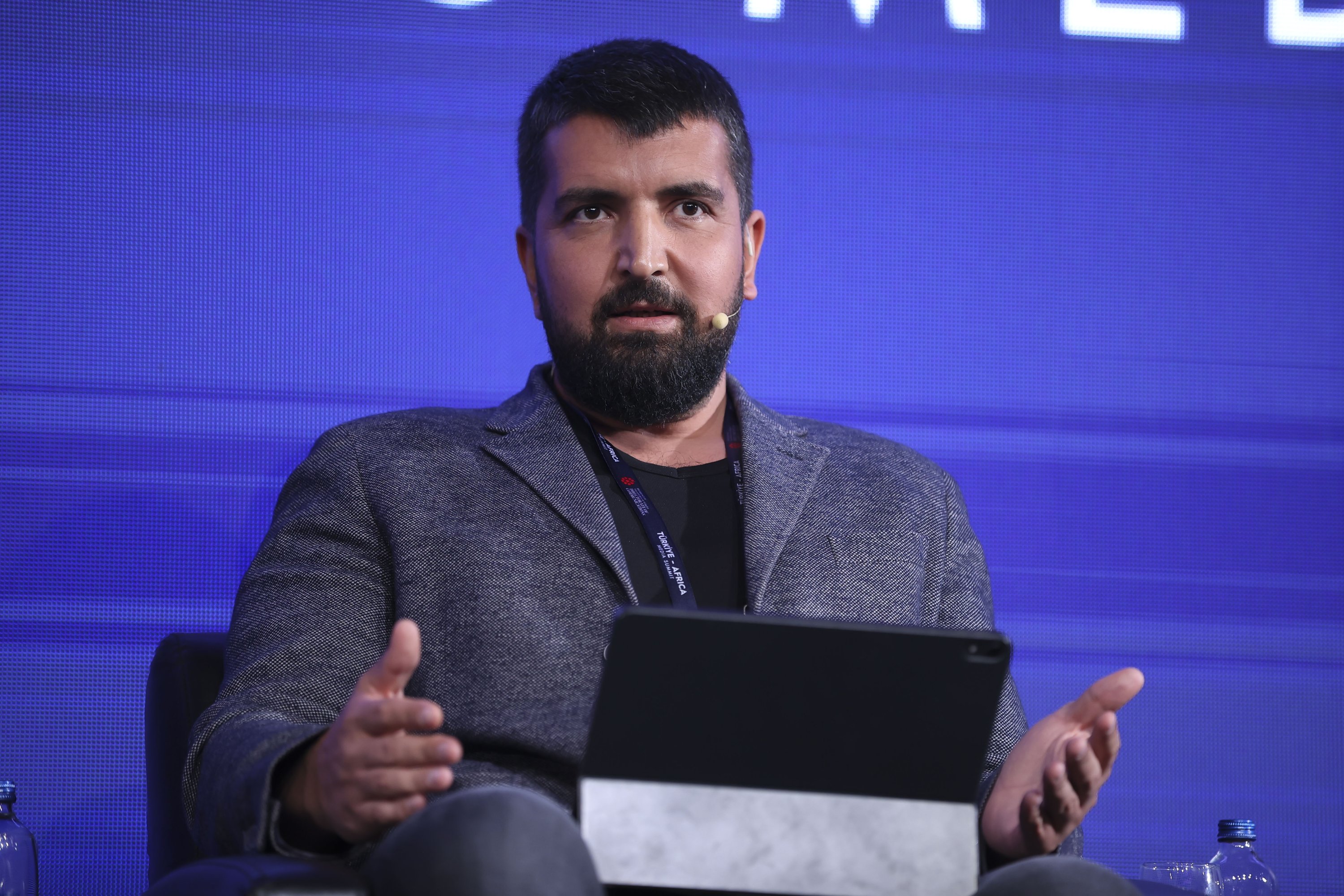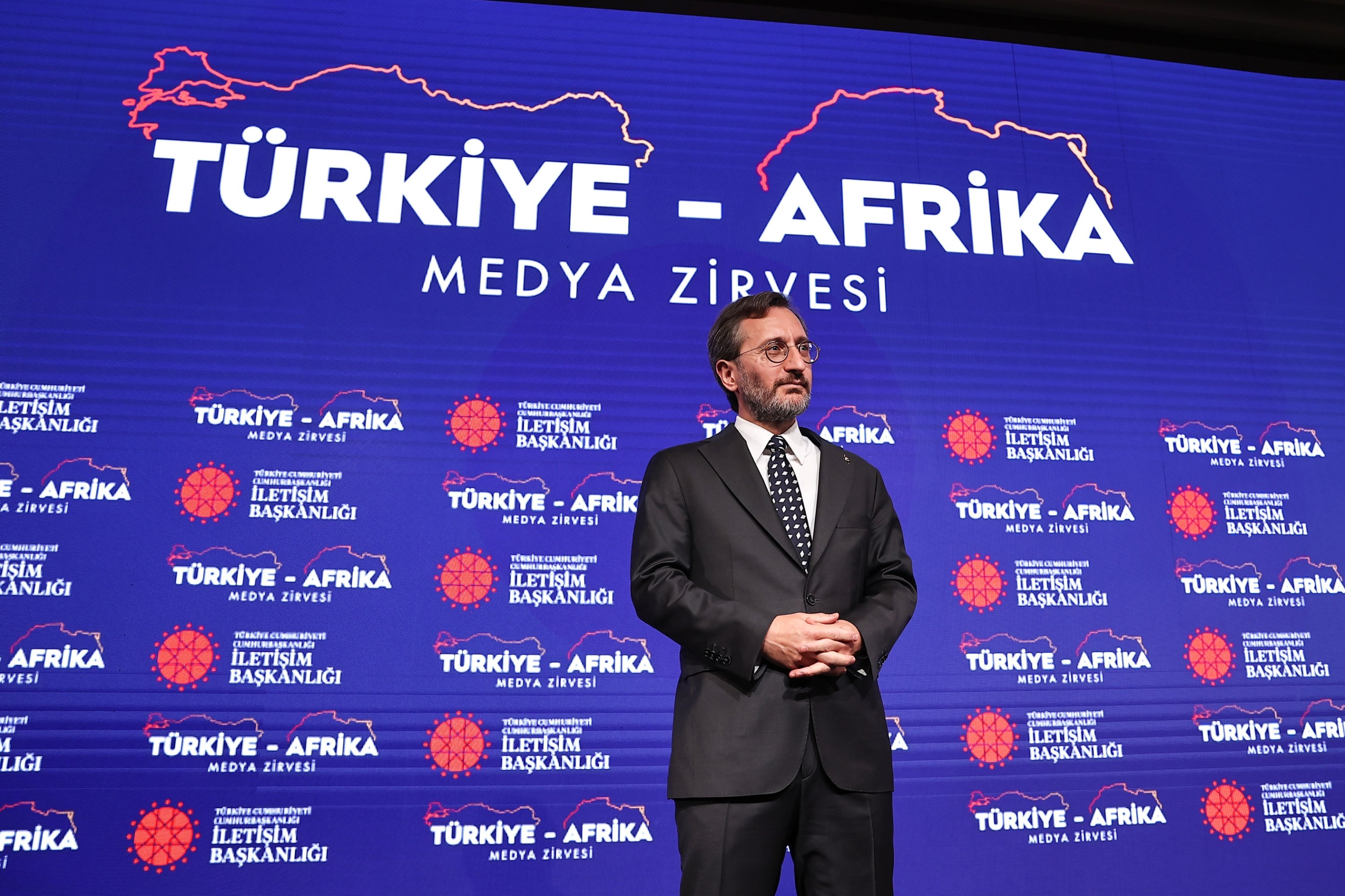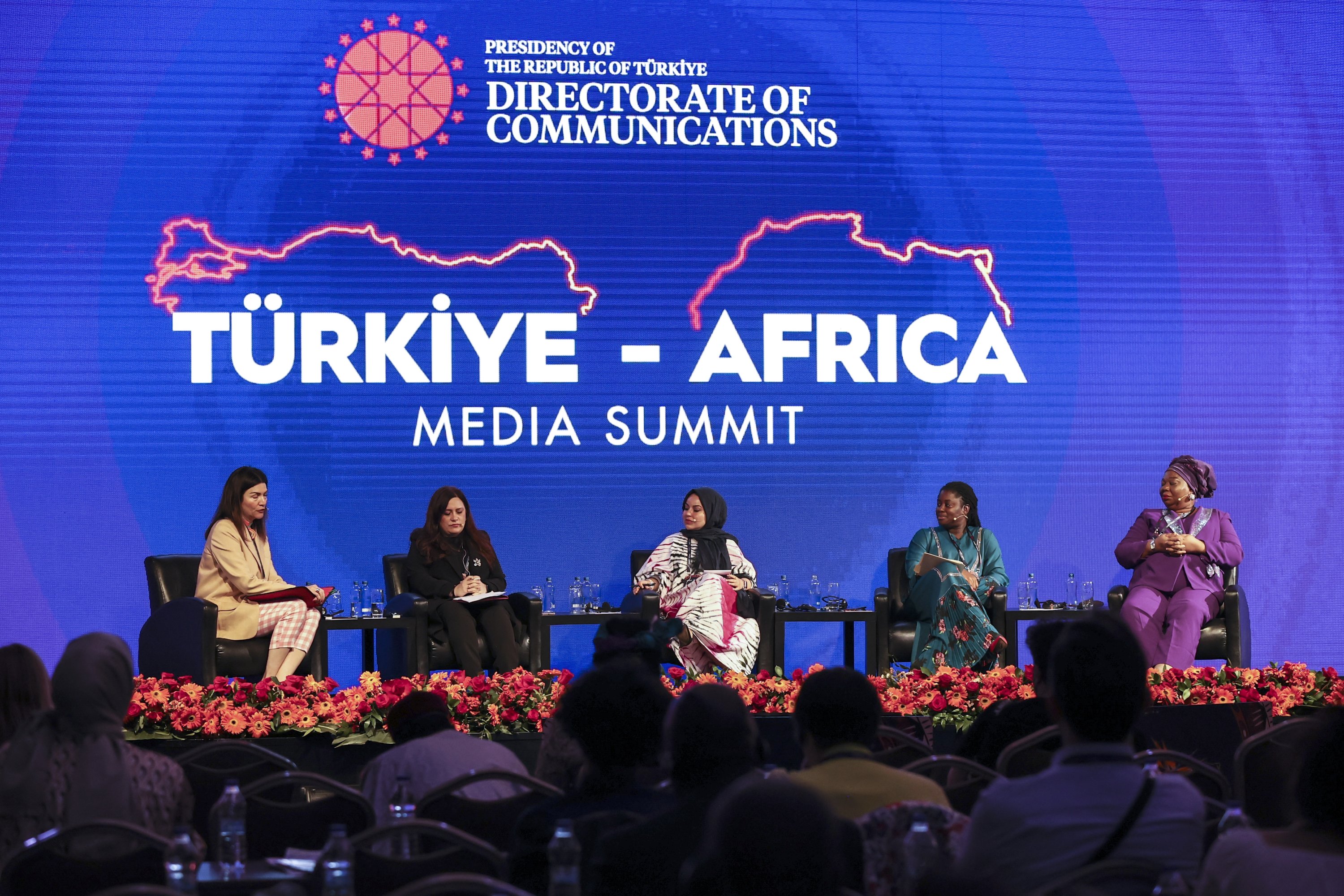© Turkuvaz Haberleşme ve Yayıncılık 2024
Journalists from Africa and Turkey have come together in Istanbul for a two-day summit to discuss the post-COVID-19 challenges that the reporters encounter.
Speaking at the Turkey-Africa Media Summit, Daily Sabah's Editor-in-Chief Ibrahim Altay underlined that human beings are creatures with limited abilities; therefore, they need news, and people shape their lives according to the news.

Stating that the news contains hidden or open advertisements, "media organizations are living organisms like humans. Therefore, we cannot expect 100% objectivity from them." Altay added.
The summit, held to mark the May 25 Africa Day, kicked off with an opening speech by Turkey's Communications Director Fahrettin Altun. The Turkish Directorate of Communication is the organizer of the event.
Besides Altay, the other panelists were Turkish Radio and Television Corporation (TRT) Board Member and academic Oğuz Göksu, Nigeria's GNEC Media Group Editor-in-Chief Kayode Akintemi, Kenya-based Standard Group Women Network head Queenter Mbori, Executive Chairperson of the South African MSG Media Group Given Mkhari, and Anadolu Agency (AA)'s World Languages Editor-in-Chief Erman Yüksel.

Erman Yüksel said digital media offers journalists certain "blessings," such as quick access to information and data, interaction with target audiences and filtering reader habits.
On the other hand, digitalization has also brought various complications, including the rapid spread of fake news, which worsened during the pandemic, said Yüksel at the panel.
Throughout the COVID-19 outbreak, journalists have been on the front line despite deteriorating working conditions, Queenter Mbori said.
Mbori, who heads the Kenya-based Standard Group's Women Network, particularly emphasized the challenges women faced during the pandemic, citing data that shows an increasing prevalence of physical or sexual violence cases.
For his part, Kayode Akintemi, from the Nigerian GNEC Media Group, underscored the financial difficulties faced by African outlets during and after the pandemic, adding that revenues had fallen for many companies.
Though governments in some countries, such as the United States and Canada, supported private companies at the end of last year, this was not the case in Africa, he noted.
Economic difficulties led to mental health issues among many journalists, according to Akintemi, "there is a level of depression within the sector and it's swept under the carpet."

TRT Board Member Oğuz Göksu said the perception of truth is determined by new media rather than traditional media.
He said that social media content and the "score" they receive now serve as "a kind of truth determination mechanism." Underlining that Turkey is an important actor in the fight against disinformation, he noted that global research has shown that, among 37 nations, Turkey is most exposed to disinformation.
The South African MSG Media Group's Given Mkhari drew attention to the difficulties faced by African journalists during and after the COVID-19 pandemic.
